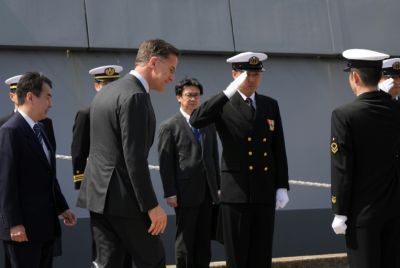BRICS Injects Huge Money to IMF’s Firewall Fund
The firewall purse being worked on by the International Monetary Fund (IMF) got a significant boost late Monday as the world's emerging markets pledged a total of $US95.5 billion to the emergency fund that the global lender said will be used to fend off threats of recession around the world.
IMF managing director Christine Lagarde announced the development yesterday, stressing that the fresh initiatives mostly coming from countries that have been accumulating great wealth over the past decade was definitely encouraging.
The huge donations offered by these nations, Ms Lagarde added, highlighted "the broad commitment of the membership to ensure the IMF has access to adequate resources to carry out its mandate in the interests of global financial stability."
Australia was part of the big donor circle, the IMF said, with its pledge to contribute more than $7 billion to the fund, which Ms Lagarde said will most useful in cushioning the impact of future global financial downturns such as the one battering many European economies at the moment.
She clarified, however, that the donations were not limited to the affluent nations as 37 governments have confirmed their commitments to the IMF firewall, which to date has breached the $US430 billion target earlier outlined by Ms Lagarde.
"Countries large and small have rallied to our call for action, and more may join. I salute them and their commitment to multilateralism," the IMF chief was reported by Agence France Presse (AFP) as saying on Monday night.
While the fund was bolstered by the financial pledges coming from both huge and medium-sized economies, China emerged as the biggest donor of them all, drawing from its deep foreign reserves to give the fund $US43 billion.
Its co-members in the loosely organised BRICS nations - which stands for Brazil, Russia, India, China and South Africa - reportedly agreed to contribute at least $US 10 billion each, with the collective act serving as the body's turnaround to its earlier reservation when the IMF first campaigned to raise the fund earlier this year.
But according to AFP, BRICS agreed to actively take part on the planned IMF firewall in order to gain more footholds on the financial agency, which has been dominated either by the United States or key European nations.
The economic bloc has been ramping up its efforts to alter the leadership make up not only of the IMF but also of its sister organisation, the World Bank, which earlier this year again gravitated to an American nominee for its new president, replacing Robert Zoellick, also from the United States.
The IMF itself played to 'tradition' as it installed Ms Lagarde, a former French Finance Minister, when its erstwhile chief executive, Dominique Strauss-Kahn, resigned in disgrace following allegations of sex scandal.
With more money coming from BRICS, the bloc hopes to increase its member nations' voting power and get assurance from Ms Lagarde that the bailout fund will not be employed in any financial intervention in Europe, AFP wrote.




















